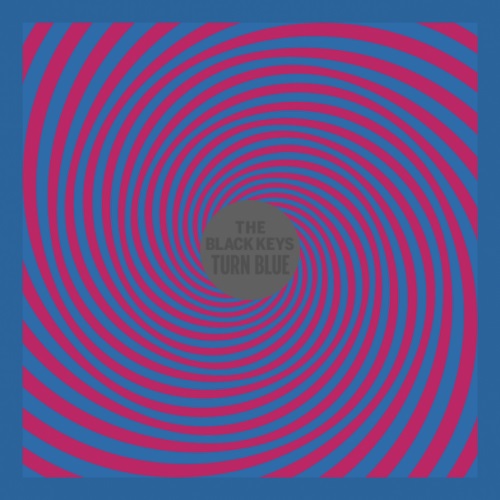The blues is like the mind – it has limitations, but within them, it’s limitless. And while The Black Keys aren’t a blues act, they are arguably the only American band that’s finding major critical and commercial success with something approximating a blues-influenced classic rock formula. Like the Rolling Stones or Led Zeppelin, this Akron, Ohio, duo mines every nuance of the pentatonic scale, understanding that when applied correctly, it’s a machine for sexy hits. That mining continues on its eighth album, Turn Blue. But for the first time since the band’s mid-career leap into arena rock land, the point is just as nuanced as the use of minor thirds.
Like your average classic rock warhorse, the band doesn’t get cute about its metaphors. Any band that’s not Eiffel 65 is probably telegraphing some level of sadness when they put "blue" in a title, and the record’s first song ‘Weight Of Love’ not only makes that clear, but conveniently lays out that second layer of meaning for us as well – relationships can suffocate. After a somber intro of acoustic guitar and vibraphone takes its time setting the stage, the recently divorced Dan Auerbach delivers the regret-sodden plea of a husband who’s been had: "I used to think/Darling you never did nothing/But you were always up to something." His delivery is typically stark and soulful, the melodies that same kind of slinky. But there’s a distinct difference here, a feeling of things slowing down, the vibraphone muffling any urge to dance as it transforms 2010 party songs into 2014 torch songs. By the end of the song’s nearly seven-minute running time, it’s clear that if we’re going to hear Black Keys hits this time, it’s going to be through a filter, like sunshine around the edges of a heavy, closed curtain.
While Auerbach’s struggles with betrayal give the album focus and an appealingly puzzle-free lyric sheet, the growing presence of Danger Mouse as co-producer and co-writer of this material is just as important. With its hooky, baritone sax-peppered R&B bounce, ‘In Time’ would probably be lead single fodder. But the subtle, patient production lends it more emotional heft, building the song up from piano and falsetto. When the chorus comes in, so does a wash of chilly synthesizers, which lend Auerbach’s guitar solos a distinct tinge of mourning.
On ‘Bullet In the Brain’, the directness of Auerbach’s pen comes back to bite him, but all the obviousness is obscured behind waves of gorgeously bending, sitar-like guitar notes. ‘In Our Prime’ stings of missed opportunity, but the way its melancholic, stripped-down opening seamlessly switches gears to a spine-tingling uptempo bounce reveals some folks who have been mainlining Sgt. Pepper’s. That the song doesn’t get lost in that shadow is a credit to the sense of gravitas that Danger Mouse has brought to the table, an emotional grey area between the grooves that fits this band surprisingly well.
At 11 tracks, Turn Blue doesn’t quite fall prey to the late-album bloat of Brothers, but it is still one song too long. Despite ‘In Our Prime’ being a stunning, natural closer, it’s followed by ‘Gotta Get Away’, a wretched bit of quittin’ time bar band rock. After the artful drowning of the previous 40 minutes, this half-assed Bob Seger impression is so heinously out of place, it makes the band seem just a bit insane. Which, admittedly, is better than seeming bored.


